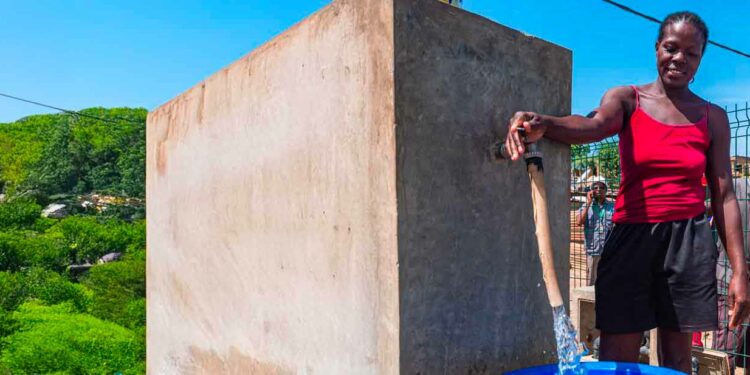Clementina Artur used to walk every morning to the river carrying an empty container and many worries. The distance was long, the water was contaminated, and diseases like cholera were common. Today, all that has changed. She turns on the tap just steps from her home and breathes easy. Like her, more than 472,000 people in Angola now have direct access to safe drinking water.
Ten years ago, an ambitious project began. The Government of Angola, with support from the African Development Bank, launched a national initiative to improve access to water and sanitation in vulnerable urban areas. The Institutional Support and Sustainability Project for Urban Water Supply and Sanitation, known as PASAASU, started in 2015 and will conclude by the end of 2025. Today, the impact is visible in thousands of homes.
The Youth Charter: Mandela’s legacy transformed through sport
More than 59,000 water connections have been installed. In peri-urban neighborhoods, 179 water kiosks serve the most remote families. Many of these are managed by women who not only ensure service but also generate stable income. Three new laboratories located in Cunene, Bengo, and Kwanza Sul monitor the quality of water delivered to each household. In Sumbe, Isabel Sambovana recalls a time when she had no toilet and had to go out into the fields, feeling fear and shame. Now she has a latrine in her backyard. She feels more comfortable, safer, and dignified. Inspired by her experience, more than 300 additional latrines have been built in her community.
The project’s work goes beyond infrastructure. It has driven the creation of seven public water companies. These now operate with better organization, technical support, and stronger finances. The private sector has also become involved to ensure long-term maintenance and sustainability. Eleven coastal cities have investment plans for sanitation, with eight already funded. Additionally, all provincial capitals now have master plans to improve their water and sewage systems in the coming years.
On the technical side, 60 young people have been trained through internship programs. Many now work in engineering, environmental management, or project administration. Helena, one of the trainees, now leads a water microbiology laboratory in Sumbe. She and her team oversee water quality across several municipalities. Gilda Giza Rede, 20 years old, is the only woman among ten technicians at the Wastewater Treatment Plant. She is training as an electromechanical technician and understands that her work also supports local farmers by enabling the reuse of treated water for irrigation.
For the African Development Bank, the project’s impact is clear. Basic services have improved, employment has been created, local capacities strengthened, and lives transformed. More than 1.5 million people have experienced change. With only a few months until its completion, PASAASU is already considered a model for other countries across the continent. A program that combined infrastructure, health, training, and empowerment. In Angola, water is no longer a luxury. Today, it is a symbol of life, safety, and hope.









